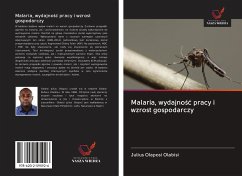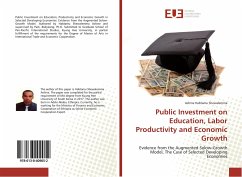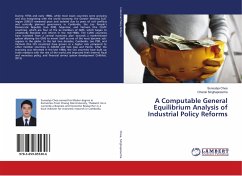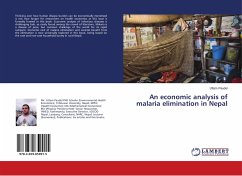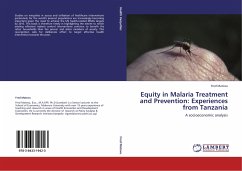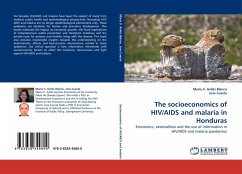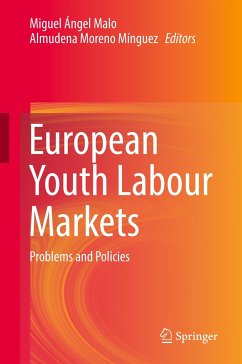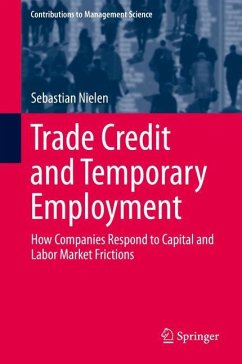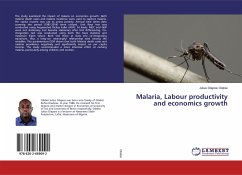
Malaria, Labour productivity and economics growth
Versandkostenfrei!
Versandfertig in 6-10 Tagen
36,99 €
inkl. MwSt.

PAYBACK Punkte
18 °P sammeln!
The study examined the impact of malaria on economics growth. Both malaria death cases and malaria incidence were used to capture malaria. Per capita income was use to proxy poverty. Annual time series data covering the period (1981-2014) were utilized. Unit Root test was conducted using Augmented Dickey Fuller (ADF). At levels, MDC and GDP were not stationary, but became stationary after first differencing. Co-integration test was conducted using both the trace statistics and maximum Eigen values. Both test show at least one co-integrating equations, thus a long-run meaningful relationship ex...
The study examined the impact of malaria on economics growth. Both malaria death cases and malaria incidence were used to capture malaria. Per capita income was use to proxy poverty. Annual time series data covering the period (1981-2014) were utilized. Unit Root test was conducted using Augmented Dickey Fuller (ADF). At levels, MDC and GDP were not stationary, but became stationary after first differencing. Co-integration test was conducted using both the trace statistics and maximum Eigen values. Both test show at least one co-integrating equations, thus a long-run meaningful relationship exist among the variables. The parsimonious ECM shows that both Malaria death cases and malaria prevalence negatively and significantly impact on per capita income. The study recommended a more intensive effort at curbing malaria, particularly among children and women.



